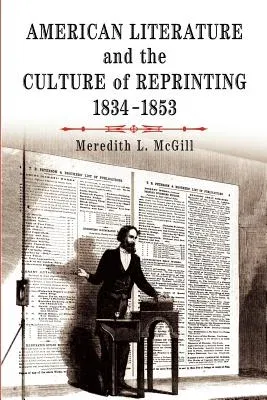The antebellum period has long been identified with the belated
emergence of a truly national literature. And yet, as Meredith L. McGill
argues, a mass market for books in this period was built and sustained
through what we would call rampant literary piracy: a national
literature developed not despite but because of the systematic copying
of foreign works. Restoring a political dimension to accounts of the
economic grounds of antebellum literature, McGill unfolds the legal
arguments and political struggles that produced an American culture of
reprinting and held it in place for two crucial decades.
In this culture of reprinting, the circulation of print outstripped
authorial and editorial control. McGill examines the workings of
literary culture within this market, shifting her gaze from first and
authorized editions to reprints and piracies, from the form of the book
to the intersection of book and periodical publishing, and from a
national literature to an internally divided and transatlantic literary
marketplace. Through readings of the work of Dickens, Poe, and
Hawthorne, McGill seeks both to analyze how changes in the conditions of
publication influenced literary form and to measure what was lost as
literary markets became centralized and literary culture became
stratified in the early 1850s. American Literature and the Culture of
Reprinting, 1834-1853 delineates a distinctive literary culture that
was regional in articulation and transnational in scope, while
questioning the grounds of the startlingly recent but nonetheless
powerful equation of the national interest with the extension of
authors' rights.

